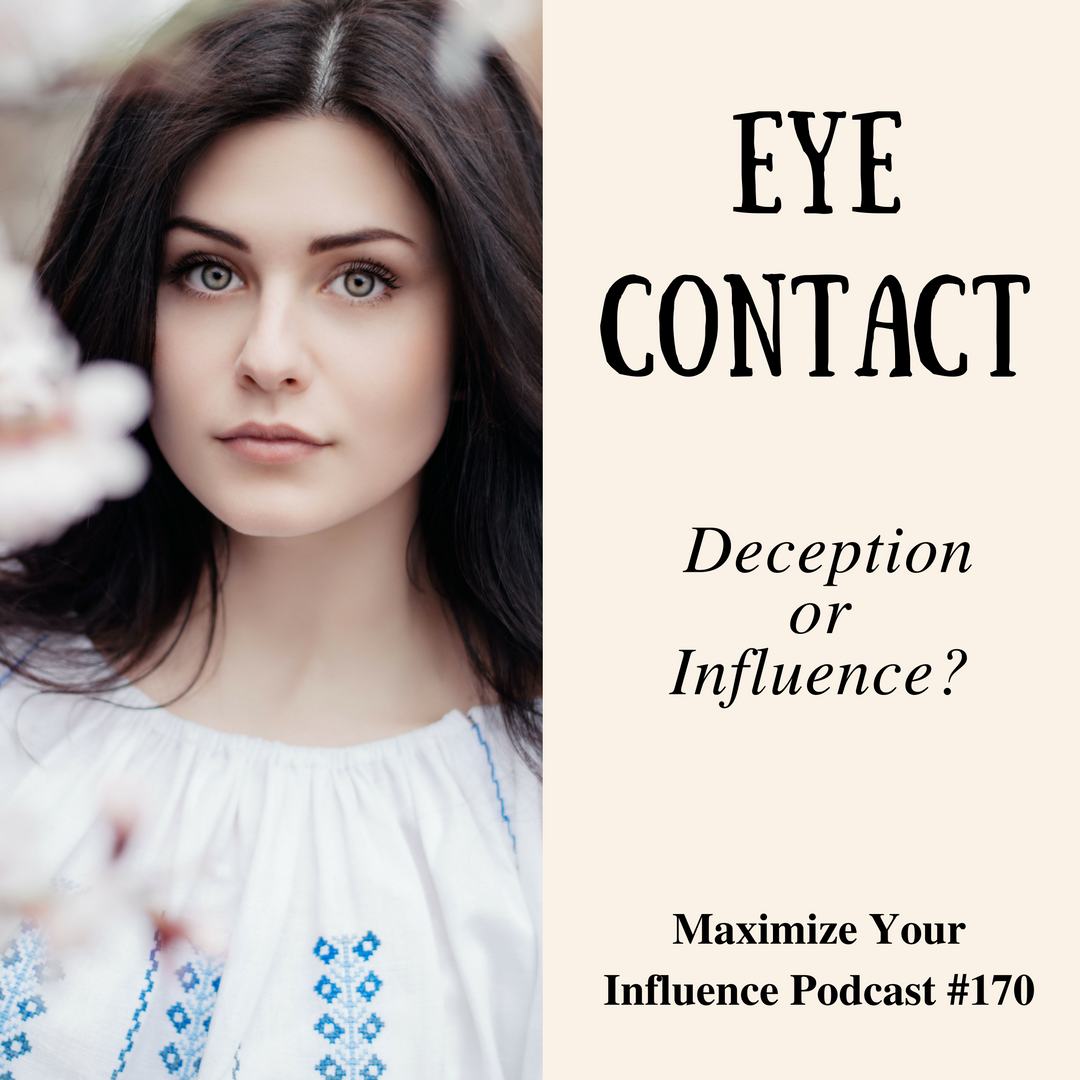Episode 170 - Eye Contact: Deception or Influence?

The New Year is here and your influence skills are more critical than ever.\xa0 You have heard enough about goals \u2013 so let\u2019s focus on those persuasion tools.\xa0 Does your eye contact help you influence or does it trigger deception cues?\xa0 Are you reading your prospect\u2019s eyes to adjust your presentation?\xa0 Let\u2019s find out the power of your eyes.
\xa0
Ralph Waldo Emerson said, "The eyes of men converse as much as their tongues." The more common phrase we hear is "the eyes are the windows to the soul." Through our eyes, we can gauge the truthfulness, attitude, and feelings of a speaker. Not making the proper amount of eye contact can have devastating results. Our pupils are one of the most sensitive and complicated parts of our body. They react to light, but they also respond to our emotions, revealing a variety of feelings.\xa0 \xa0
Making eye contact can also convey love or passion. In a number of studies on eye contact and attraction, researchers found that simply looking into one another's eyes can create passionate feelings. In one particular case, two members of the opposite sex who were complete strangers were found to have amorous feelings toward each other after merely gazing into one another's eyes. \xa0\xa0In another study, beggars were interviewed about their "tactics" for getting donations. Several of the beggars stated that one of the very first things they tried to do was establish eye contact. They claimed that making eye contact made it harder for people to pretend they hadn't seen them, to ignore them, or to just keep walking.\xa0 Other studies have shown that public speakers who make more eye contact, use pleasant facial expressions, and incorporate appropriate gestures into their speeches have more persuasive power than speakers who do not.
What do we need to know about the eyes?
Sunglasses \u2013 Hide the eyes and arouse distrust
Avoidance of eye contact \u2013 Lack of confidence
Less than 50% eye contact - Insincere and distant
Increased eye contact \u2013 Starting to accommodate or acceptance
Rapid blinking \u2013 Resistance to what has been done or said
Extended eye contact \u2013 Anger, love or frustration
Pupils dilate \u2013 Interested, and receptive
\xa0